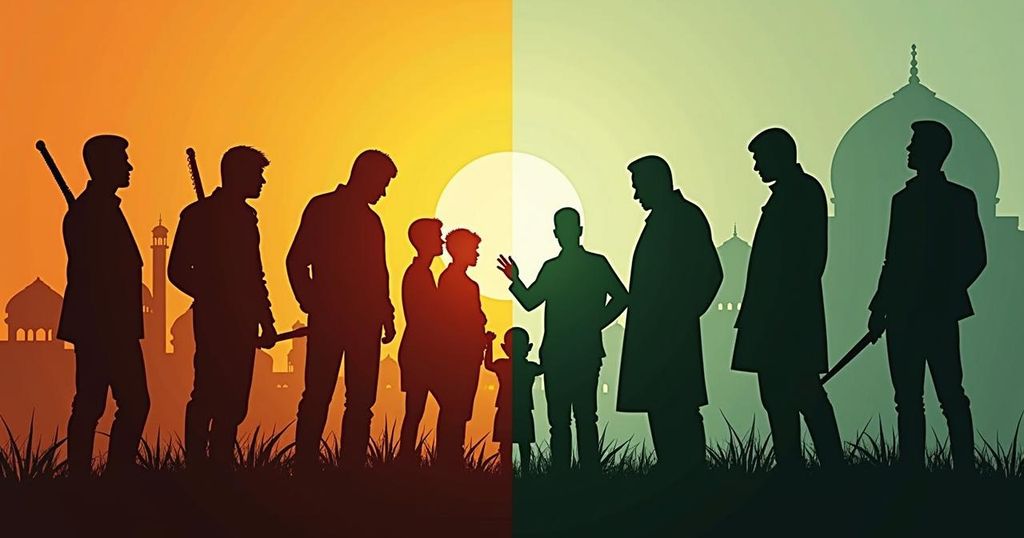Bangladesh’s caretaker government, led by Muhammad Yunus, is seeking Pakistan’s assistance to revive Saarc, a regional group dormant since 2016. India has opposed this revival primarily due to concerns over terrorism linked to Pakistan. The talks between Yunus and Sharif indicate a new approach towards collaboration, driven by economic challenges. However, India’s strong stance against terrorism complicates the prospects for Saarc’s revival.
Muhammad Yunus, the leader of Bangladesh’s caretaker government, recently engaged in discussions with Pakistan Prime Minister Shehbaz Sharif regarding the potential revival of the South Asian Association for Regional Cooperation (Saarc), a group that has been largely inactive since 2016. While Pakistan has long advocated for the resurrection of Saarc, India has consistently opposed this idea, primarily due to concerns regarding Pakistan’s history of supporting terrorism. Indian Foreign Minister S. Jaishankar articulated this opposition, stating that India “will not tolerate a situation where ‘terrorism happens by night and trade happens by day’.” The Saarc, comprising eight South Asian countries, has struggled to find its footing, especially after India withdrew from the 19th Saarc Summit following a terrorist attack in Uri, Kashmir, which underscored Pakistan’s complicity in regional terrorism. Since then, India’s hardline stance against Pakistan has led to broader skepticism about Saarc’s viability as a platform for cooperation. The recent discussions between Yunus and Sharif, held on the sidelines of the UN General Assembly on September 25, 2023, indicate a shift in Bangladesh’s approach toward Saarc. Yunus has expressed optimism about the potential of Saarc as a model for regional collaboration, likening it to the European Union, and has sought Sharif’s support in reviving it. There is a pragmatic economic underpinning to this push, as both nations grapple with their respective economic challenges. Pakistan’s economy is under severe strain, while Bangladesh’s recent downturn has prompted attention toward collaborative trade efforts through Saarc. However, India remains a critical player in this regional equation, with its burgeoning economy showing resilience and growth, a factor that makes its participation in Saarc crucial for the organization’s success. In conclusion, while Yunus and Sharif advocate for a renewed Saarc, India’s reluctance stems from longstanding security concerns, indicating a complex interplay of regional politics and economic aspirations within South Asia.
The South Asian Association for Regional Cooperation (Saarc) was established in 1985 to promote regional integration and economic cooperation among its member states, which include Bangladesh, Bhutan, India, the Maldives, Nepal, Pakistan, and Sri Lanka. Since 2016, Saarc has been dormant due to increasing tensions between India and Pakistan, particularly surrounding issues of terrorism. India’s withdrawal from the 19th Saarc Summit following the Uri attack illustrated its stand against Pakistan’s alleged support for terrorism, significantly impacting the organization’s functioning. The recent interest expressed by Bangladesh’s caretaker government in reviving Saarc highlights changing dynamics in South Asian politics, especially with respect to economic collaboration.
In summary, the discussions between Bangladesh and Pakistan regarding the revival of Saarc signify a potential shift in regional dynamics, fueled by economic necessity and a desire for greater collaboration. However, India’s firm stance against any engagement with countries perceived to be supporting terrorism poses a significant barrier to the revival of Saarc. The future of this regional organization remains uncertain, hinging on the interplay of political will, economic motivations, and security considerations in South Asia.
Original Source: www.indiatoday.in






